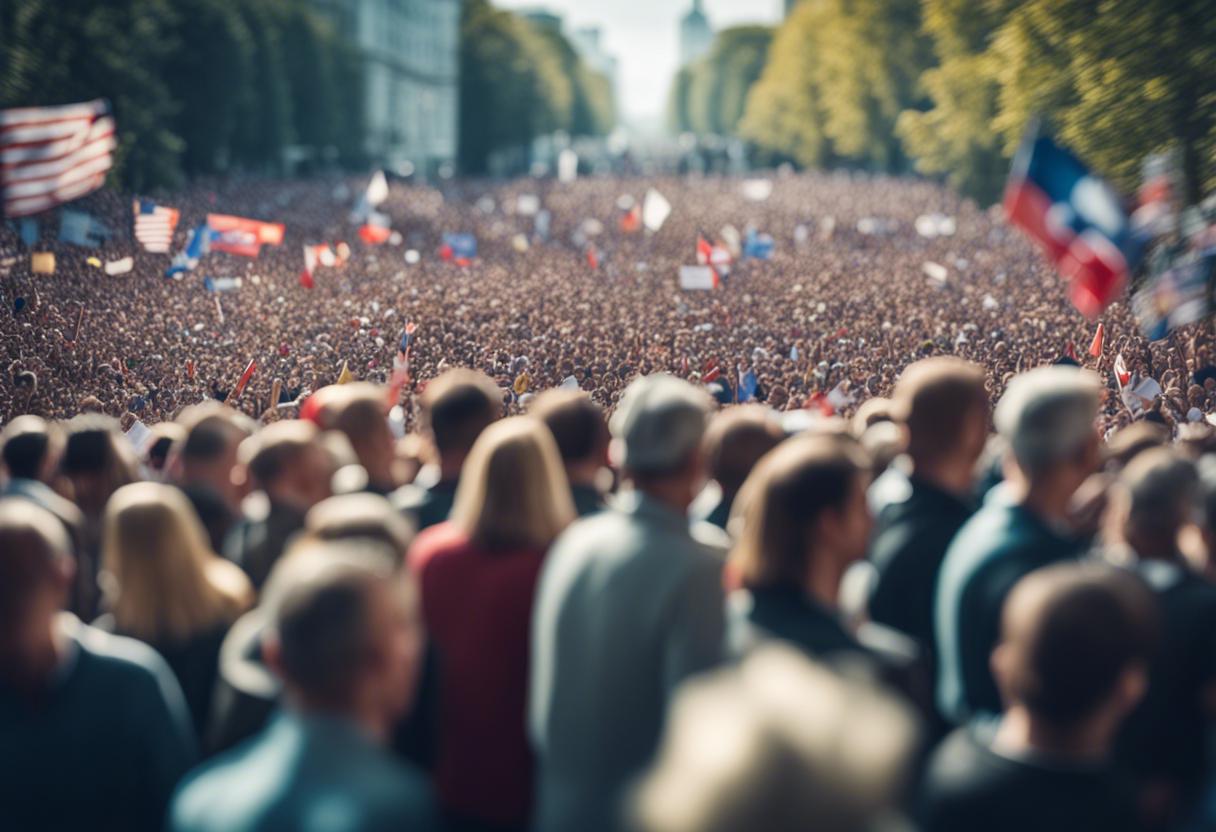Malcolm X once made the comment “Chickens coming home to roost” in reaction to the killing of John F Kennedy, suggesting that violence begets violence, especially in a society structured on racism and militarism. This view may be somewhat brutal, yet it holds some validity and is particularly relevant in the wake of the recent assassination attempt on Donald Trump.
There’s no ambiguity in stating that the attempted assassination of Trump is a shocking act and an attack on democracy. It is a fundamental democratic principle to respect your adversaries’ right to life, even when you vehemently disagree with them. Believing that American democracy would benefit from Trump’s death shows a misguided understanding of the democratic process.
However, condemning such violence doesn’t mean one cannot explore its roots. It’s clear that Trump himself played a significant role in fostering a climate that accepts and carries out such violent acts. The attempt on his life underscores how individuals who fan the flames of violence can also become its victims.
Trump stirred up the most significant act of political violence in the US since the civil war, encouraging his supporters to storm the US Capitol on 6th January 2021 to block Biden’s ascension to the presidency. In a fortunate turn of events, no political leaders lost their lives as Trump’s backers breached security. This orchestrated attack should be remembered as a thwarted mass killing of American politicians. It’s important we recall how Trump himself endorsed the violence that was eventually turned against him.
As part of his campaign to reclaim the presidency, Trump has often celebrated the January 6th insurgents as martyrs. He vowed to pardon those found guilty of crimes, labelling them as ‘hostages’ and suggesting to halt any outstanding court proceedings, including those against him. He faces a myriad of legal charges related to his efforts to subvert the election, climaxing with the January revolt – Trump’s ultimate manifestation of political violence. During his term as president, he frequently vilified his opponents, leading his ‘Make America Great Again’ (MAGA) followers to view them as enemies, inciting aggressive actions by his supporters. He was further backed by white nationalist armed groups. Notably, in 2017, Trump defended some white supremacists, including neo-Nazis involved in the Charlottesville assault, describing them as ‘very fine people’.
The issue of gun violence in the United States has been fuelled by Trump and the Maga movement. Gun violence, which accounts for over 40,000 American deaths annually, now surpasses auto accidents as the primary cause of fatalities among children. The country has now become desensitised to mass shootings owing to their frequency. While the gun predicament didn’t originate with Trump, he spearheads a faction relentlessly advocating for fewer firearms regulations and the ownership of assault weapons like the AR-15 used against him. Within the Maga group, gun possession symbolises a willingness to partake in revolutionary aggression. As voiced by a notable member, the focus is not on the “right to hunt”, but on the “right to combat despots”.
The internal violence mirrors the aggression the country has committed overseas. Lee Harvey Oswald, who assassinated Kennedy, honed his shooting skills during his service in the US Marine Corps. Although there’s no known military link to Trump’s assailant, the general availability of assault weapons is a clear indicator of American militarism’s rebounding effect. Additionally, disenchanted military veterans have conspicuously joined ranks with white supremacist paramilitaries since the Vietnam War and more recently, the Maga movement. Several individuals who attacked in January were veterans from the US’s never-ending conflicts in Afghanistan and Iraq.
The likelihood of Trump acknowledging his role in fostering circumstances that resulted to an assassination attempt on his life is quite minimal. Notably, the assassination attempt on George Wallace in 1972, a presidential candidate famed for his racist popular views similar to Trump, prompted him to reassess his ideologies. In fact, he withdrew his initial racial segregation support. Visualising Trump making such a dramatic shift in viewpoint seems improbable.
Experiencing an assassination attempt can slightly polish a politician’s image. For instance, Ronald Reagan’s popularity polls improved following the attack on his life during the early stages of his administration. As regards Trump and his passionate followers, an assassination survival will propel the notion of his near invincibility, something he himself admitted to his allies in 2023, that being shot could likely garnish him election victory. Consequently, the demonstration of courage in the face of danger could assist Trump in securing a November win for the White House. This is particularly likely given his competition, Joe Biden, who after a disastrous debate last month, appears mentally unstable prompting most party members to seek his replacement. As demonstrated in that debate where Trump emerged victorious despite his constant deceptive tactics and threats to American democracy, power and falsehood seem to trounce feebleness and truth in politics.
The attempted assassination is likely to become a notable highlight in an already unstable presidential campaign. Anticipatedly, Trump will utilise it to gain political advantage. As a matter of fact, his initial impulse was to exhibit bravery to his admirers. Following the cease of gunshots, as secret service agents shielded him to safety, he asked for a pause. With his face stained with blood from the shot wound on his ear, he gestured his fist towards his supporters encouraging them to fight. His followers reciprocated with loud chants of, “USA! USA!” Historically, despotic leaders have leveraged attacks on them to unleash heightened torrents of violence on others.
The unforgettable sight of this occurrence will likely be Trump’s bloody face as he defiantly raises his fist to his followers. However, this doesn’t capture the complete picture of the episode.
Trump was not a hero but a casualty on a Saturday; a casualty of the spiral of political brutality he instigated.
Daniel Geary currently serves as the Mark Pigott Associate Professor in American History at Trinity College Dublin.

